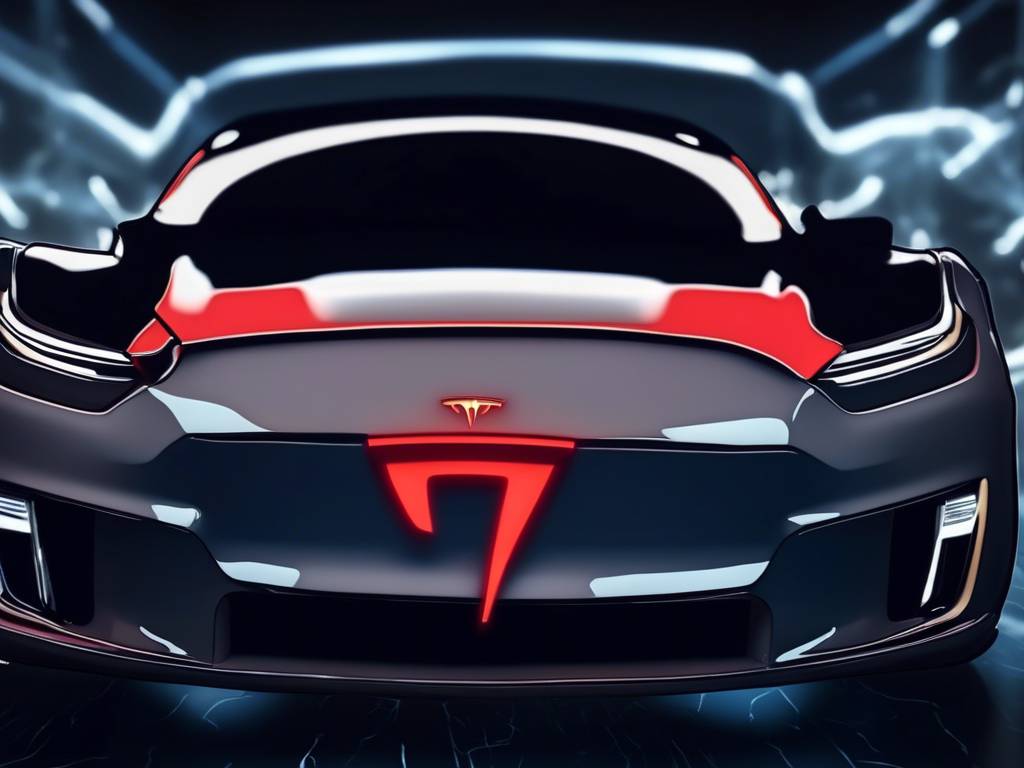Tesla’s Profitability Dilemma in the Face of Rising Volumes
Tesla shareholder Ross Gerber expresses concern that Tesla’s profits and margins may decrease even as their production volumes increase. He emphasizes that while investors may appreciate Tesla’s ambitious vision, it might come at the cost of shareholder returns. Gerber suggests that Tesla’s focus on innovation and future technologies such as autonomous driving and AI could impact their short-term financial performance negatively.
Ross Gerber and Dan Ives Analysis of Tesla’s Financial Performance
↦ Dan Ives, managing director at Wedbush Securities, concurs with Gerber’s assessment, highlighting Tesla’s need for a more conservative approach to financial management. Ives notes that while Tesla’s recent earnings call showed a more responsible leadership style from Elon Musk, there are concerns about the company’s profitability amidst their ambitious plans for the future.
- Elon Musk’s Leadership:
- Ives praises Musk for displaying a more mature and responsible attitude on the recent earnings call, suggesting that Tesla needed a more grounded leader.
- Gerber echoes this sentiment, referring to Musk’s positive response to the idea of a $25,000 or less model as a step in the right direction.
- Financial Concerns:
- Both Gerber and Ives express doubts about Tesla’s ability to maintain profitability amid their focus on futuristic technologies and mass EV adoption.
- Ross Gerber highlights the potential sacrifice of shareholder returns for the sake of Tesla’s long-term vision.
- Implications for Tesla’s Future:
- Ives suggests that Tesla’s current challenges could be offset by their innovative AI and autonomous driving technologies in the long run.
- Gerber emphasizes the importance of balancing Tesla’s innovation with financial sustainability for the benefit of both shareholders and customers.
The Debate Over Tesla’s Revenue Model
↦ Gerber and Ives engage in a discussion about Tesla’s revenue model, questioning whether the company can sustain itself by selling cars at cost while focusing on other revenue streams such as services and AI technology.
- Comparisons to Apple:
- Gerber draws parallels to Apple’s business model, suggesting that Tesla could follow a similar path by prioritizing profits from services while selling cars at cost.
- Ives challenges this analogy, arguing that Tesla’s core business of selling cars cannot be overlooked in favor of other revenue streams.
- Profitability vs. Innovation:
- Gerber raises concerns about Tesla’s financial viability in the face of increasing competition and evolving market dynamics.
- Ives emphasizes the importance of balancing profitability with innovation to ensure Tesla’s long-term success in the auto industry and beyond.
- Future Prospects:
- Both Gerber and Ives acknowledge Tesla’s potential to become a major player in the AI and autonomous driving sectors, but caution that financial stability is crucial for sustained growth.
- They suggest that Tesla’s valuation could soar to unprecedented levels if they strike the right balance between innovation and financial prudence in the coming years.
Hot Take: Evaluating Tesla’s Path to Financial Sustainability
Despite Tesla’s ambitious vision and groundbreaking technologies, shareholders like Ross Gerber remain wary of the company’s financial outlook. While Tesla’s focus on innovation and mass EV adoption is commendable, Gerber and Ives stress the importance of maintaining profitability to ensure long-term success. As Tesla navigates the challenges of balancing innovation with financial sustainability, the key takeaway is the need for a strategic and prudent approach to secure the company’s future growth and profitability.





 By
By
 By
By

 By
By
 By
By